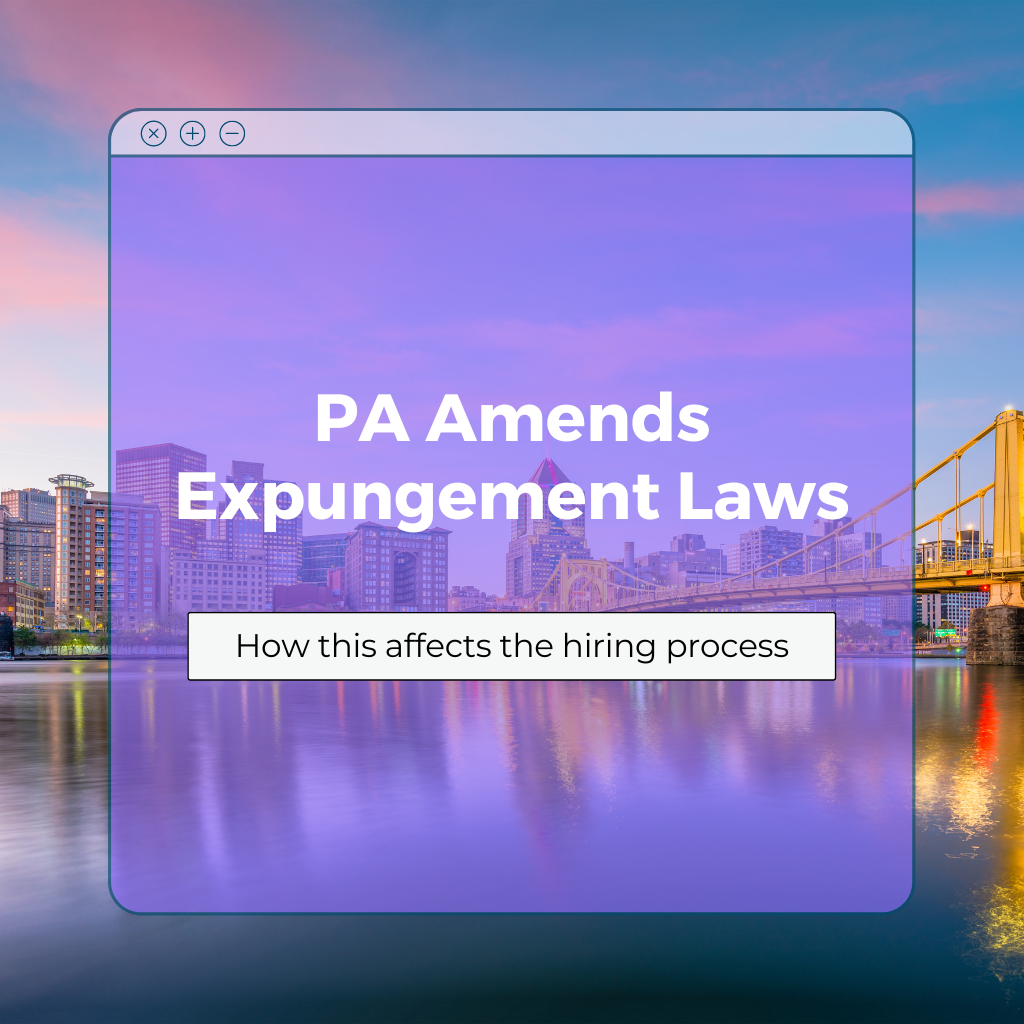New Pennsylvania Ordinances Amending Expungement Laws Go Into Effect
Jan 25, 2024
Philadelphia, Pennsylvania, has enacted changes that will affect the hiring process for many employers. House Bill Number 689 (HB 689) will go into effect on February 12, 2024. This timeframe is shortly after becoming law on December 14, 2023.
HB 689 intends to amend Pennsylvania law about expunging some information on criminal records. In addition, it will address employer immunity when hiring applicants with expunged criminal records. The law also described the immunity provided for employers. For example, it will protect employers from liability for claims related to employee behavior.
More specifically, HB 689 addresses the behavior of employees with expunged criminal records. It also details how employers may lawfully use this information when voluntarily provided by the employee. These clarifications address the confusion in the current law. For example, it would address liability for negligent hiring.
In this case, negligent hiring concerns whether someone with an expunged criminal record subsequently engages in misconduct. The current law lends ambiguity about whether the employer holds liability. HB 689 will also expand automatic expungements to include pardons.
The law will require the Pennsylvania Board of Pardons to inform the Administrative Office of Pennsylvania’s Courts (AOPC) of quarterly pardons. After this, the AOPC must notify the applicable Court of Common Pleas to expunge these records. The public will lose access to the expunged criminal records once HB 689 takes effect. Affected entities include employers, landlords, school officials, and other private entities that make similar decisions. However, federal law can return access to the sealed information.
The law will also expand eligibility for the state’s pre-existing limited access status for criminal records. Under HB 689, those who avoided convictions for seven years and meet other requirements may petition for limited access. This timeframe is an improvement from waiting ten years, as was previously required. The law also specifies which categories of offenses are eligible for limited access petitions. However, it does not change how an employer can use the reported criminal records.
Alongside HB 689, Philadelphia has amended its Fair Criminal Record Screening Standards Ordinance. The ordinance defines exoneration as “reversing or vacating a conviction through an acquittal, dismissal, pardon, or another re-examination of the case after the conviction by the court or another government official.” The ordinance generally bans employers from refusing to hire someone based on convictions subject to exoneration as defined in the ordinance.
Pennsylvania employers should review their hiring policies to ensure they are ready for HB 689. They should also prepare for the amended ordinance if it follows HB 689’s success. One way to ensure compliance with these and other relevant laws is to work with a trustworthy background check company. The right provider will deliver accurate, timely, and compliant reports to ensure companies make informed decisions.
Keep your business compliant with new laws and regulations with JDP’s reliable background checks. Contact a sales rep today.
